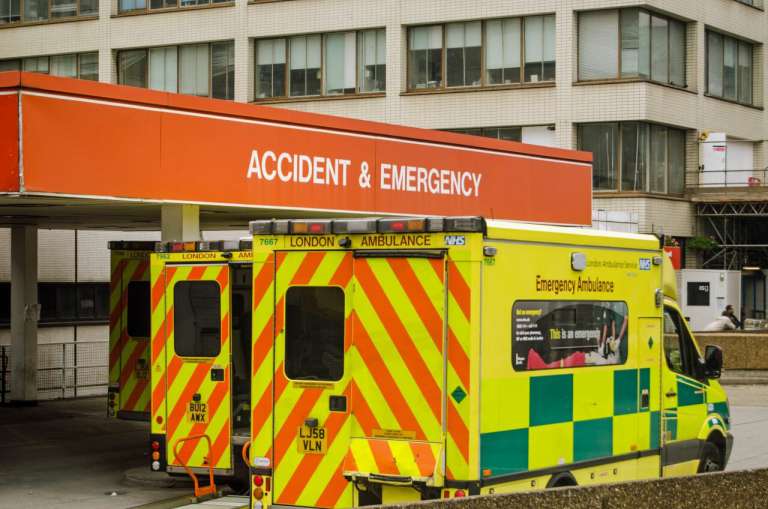A UK road safety charity has expressed concerns that the government is not doing enough to tackle road safety issues. IAM RoadSmart, has stated that the UK has made “practically no headway” on road safety in the past few years.
Road safety progress had been significant over the last several decades but has stalled since 2010. In general, the fatality numbers are not going down. “There’s immense frustration,” Philip Gomm, a representative from the RAC Foundation, told The Guardian. “Things were getting better, and now they’re not.”
In 2016 many police forces switched to a new form of casualty reporting, which is considered more accurate but raised the number of serious incidents, making comparisons with previous years difficult.
Investigations by The Guardian have also shown another concerning trend; whilst road safety for drivers is better than ever, more and more pedestrians are being killed. Their research found that in almost every country in the world, it remains on average more dangerous, per mile of travel, to be a pedestrian than to be a driver or passenger.
IAM RoadSmart suggested that “government disruption” has made road safety a lower priority for politicians in power.
“The uncertainty surrounding Brexit has swallowed up the attention of the decision makers for too long now, which means people are still dying on our roads at the same level as six years ago – as a developed nation, that is pretty disgraceful,” said Neil Greig, IAM RoadSmart director of policy and research. “It is really time the government renews its commitment to this issue which is affecting all communities in society, young and old, and make sure we don’t continue to kill and injure people in ways that could so easily be prevented.”
“Road safety is everyone’s responsibility and it is clear that working in partnership to promote it is the key to returning to critical, long term downward trends. More incentives for post-test training, consistent enforcement of new motoring laws, accelerating the uptake of AEB (autonomous emergency braking) equipped cars and promoting best practice in driving for work are just a few examples of the quick gains that could be achieved.”
The news comes after data released this week revealed a one-percent reduction of road deaths in 2018. However, data also showed that the number of seriously injured causalities rose from 24,831 to 25,500.
The RAC expressed similar concerns. The head of roads policy, Nicholas Lyes stated “In short, there has been no meaningful reduction in fatalities at a national level for seven consecutive years now. While we welcome the Government’s renewed focus with the publication of its recent road safety statement, there needs to be a significant shift in policy that will result in far fewer serious collisions.
“Of particular concern are the rises in fatalities among older age groups and a spike in fatalities on motorways – some worrying trends are emerging here that require immediate investigation, to understand the reasons for these increases and what can be done to reduce them. In addition, the Government’s data suggests an increase in motorway collisions where at least one driver has been under the influence of illegal drugs. Historically, Great Britain has been proud of its road safety record, but these figures clearly show there is no room for complacency.”
Despite little progress from governments, there have been some advancements in technology and localised schemes that have seen improvement in road safety.
Since 2017, General Motors, the largest car manufacturer in the United States, has claimed that it is developing self-driving vehicles in the service of a “triple-zero” world: zero crashes, zero emissions and zero congestion. Cars now come equipped with “pedestrian detection and avoidance” systems and aim to eventually take over the driving process altogether, promising to eliminate human error.
Last month, a road safety campaign on the M62 motorway was launched by Highways England. Working with six police forces, the Health and Safety Executive and the Driver and Vehicle Standards Agency (DVSA), the scheme hopes to reduce accidents on one of the busiest routes in England – where collisions currently average at five a day.
The scheme will see enforcement agencies carry out checks on vans and lorries to assess security of loads, road worthiness, weight and drivers’ hours. Additionally, an HGV supercab will allow police officers to film evidence of unsafe driving behaviour.
John Walford, Incident Prevention Manager at Highways England, said “The vast majority of drivers obey the law but a few are risking potentially devastating consequences by not carrying out appropriate checks before setting off or by driving dangerously.”
However, local governments have also come under heavy criticism for the introduction of all-lane running (ALR) routes and smart motorways, which have seen hard shoulders replaced with emergency refuge areas.
Critics say that although the average number of causalities has stagnated across England’s roads, there has been an eight per cent spike in the number of causalities on motorways. Some reports show that four people have died on the same 16-miler stretch of the M1 motorway in just 10 months, after being hit my traffic in a live lane that used to be a hard shoulder.
Highways England disagreed with campaigners, stating that analysis of smart motorway ALR schemes continued to indicate that they “are as safe as our wider motorway network”
Additionally, new proposals put forward by the Department for Transport (DfT) will require all motorists over 70 to have an eye test every three years, hoping to tackle accidents involving older drivers – an area of road safety concern that has received significant attention since high-profile incidents involving the 98-year-old Duke of Edinburgh earlier this year.
The DfT told news outlets that they want to “find out more” about whether this could reduce road deaths before deciding whether to introduce the policy.
In other areas, the issue of road safety has been left to local charities and community fundraising. In September, the Road Safety Trust’s launched a Small Grants Funding Programme to help improve road safety at a local level. The grants will allow individual projects that have a practical purpose with the aim of trialling or testing ways to improve road safety to be awarded between £10k and £30k.
Sally Lines, Chief Executive of Road Safety Trust said “We are working towards a vision of zero deaths and serious injuries on UK roads. We want to make the roads safer for all users. By adding the option to apply for small grants in addition to our more extensive funding options, we hope to open up opportunities to greater numbers of organisations working in road safety.
“The programme was designed after reviewing our first four years of funding and listening to the views of stakeholders. We identified a need for funding for smaller, local projects with a practical focus. We are looking for measurable interventions that reflect local priorities and show a proposed link to reducing casualties either directly or through clear interim measures.”
However, recent studies have also shown that despite the lack of significant progress, Britain’s roads are still among the safest in the world. Across Europe, only Switzerland and Norway have fewer road causalities per million inhabitants.
The RAC’s Nicholas Lyes added “Historically, Great Britain has been proud of its road safety record, but these figures clearly show that is no room for complacency.”





